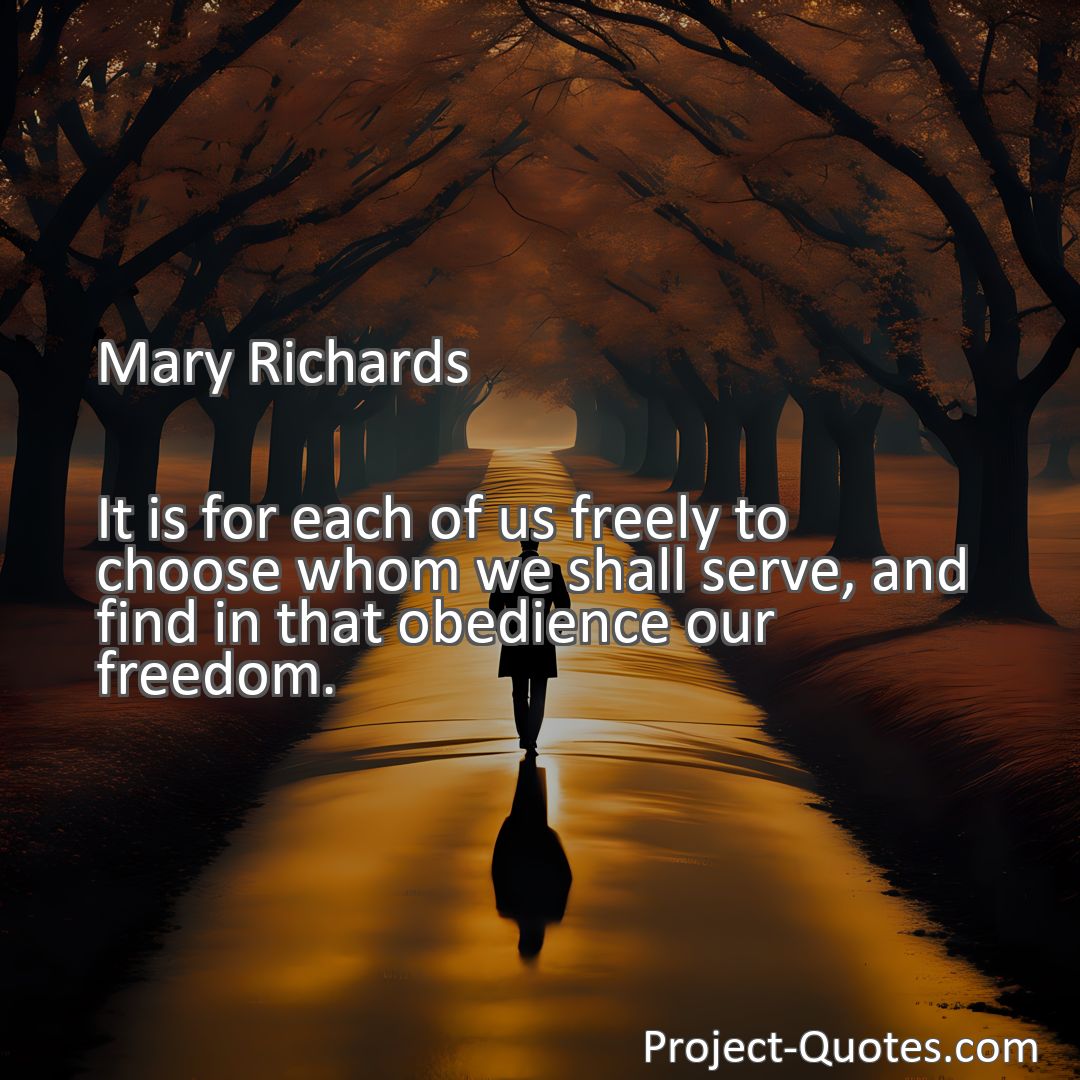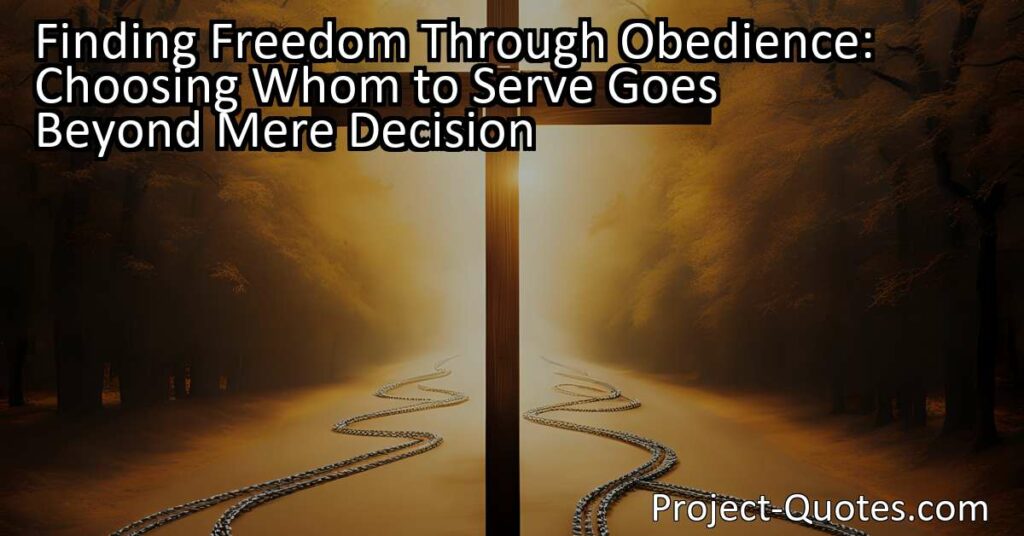It is for each of us freely to choose whom we shall serve, and find in that obedience our freedom.
Mary Richards
Finding Freedom Through Obedience: Choosing Whom to Serve Goes Beyond Mere DecisionAt first, obedience and freedom may seem contradictory, but Mary Richards suggests that true freedom lies in aligning our values with whom or what we choose to serve. Our choices go beyond decision-making; they involve deeply rooted beliefs and values. Through introspection and self-discovery, we can find purpose and fulfillment, becoming architects of our own destinies. So, let’s reflect on whom we choose to serve, for in that conscious obedience, we find our freedom.
Table of Contents
Meaning of Quote – It is for each of us freely to choose whom we shall serve, and find in that obedience our freedom.
In the words of Mary Richards, “It is for each of us freely to choose whom we shall serve, and find in that obedience our freedom.” This quote encapsulates the essence of personal autonomy and highlights the power individuals possess in shaping their lives.
At first glance, the idea of obedience may seem contradictory to the concept of freedom. Obedience is often associated with following rules or conforming to societal norms, while freedom implies liberation from such constraints. However, Richards suggests that true freedom can be found within our chosen alliances and commitments. Let’s explore this notion further.
In our journey through life, we encounter numerous opportunities to make choices some big, some small. These choices ultimately shape our identity and determine the paths we tread. However, the decision of whom we choose to serve goes beyond mere decision-making; it delves into the realm of deep-rooted beliefs and values.
Serving someone or something implies a sense of obligation and loyalty. It suggests dedicating oneself to a cause, a person, or an ideal. Such commitment can range from devotion to a religious deity, allegiance to a country, or loyalty to a loved one. This idea of serving resonates with the concept of obedience, as it implies a willingness to submit oneself to a greater authority.
Interestingly, Richards frames this concept as a choice. This highlights the agency we possess in deciding whom or what we serve. As social beings, we navigate a complex web of relationships and affiliations, each vying for our allegiance. Family, friends, community, and society all present their own demands, each with varying degrees of influence over our lives.
The ability to exercise free will in choosing our allegiances is a powerful tool. It allows us to align ourselves with causes and ideas that resonate with our core values. For example, someone might choose to serve a charitable organization because they believe in helping those less fortunate. This act of obedience becomes a source of freedom, as it brings meaning and purpose to their life.
In finding freedom through obedience, it is crucial to consider the motivations behind our choices. Blindly following orders or conforming to societal expectations may lead to a loss of individuality and authentic self-expression. Instead, genuine freedom arises when we align our actions with our deeply held principles.
Moreover, the process of choosing whom we serve often involves introspection and self-discovery. It prompts us to question our beliefs and values, forcing us to confront our truest aspirations. Through this journey, we come to understand ourselves on a deeper level, paving the way for personal growth and self-actualization.
By actively selecting whom we serve, we take ownership of our lives and become architects of our destiny. This sense of agency empowers us to chart our own course, rather than being victims of circumstance. It liberates us from the notion that our lives are predetermined, offering us the opportunity to create a life filled with purpose and fulfillment.
However, true freedom does not exist in isolation. As social beings, our choices inevitably impact others, and we are bound by the consequences of our actions. Therefore, the idea of obedience and the pursuit of freedom must be grounded in a consideration of the greater good.
Serving others, whether through acts of kindness, compassion, or by contributing to the collective welfare, not only benefits society but also enriches our own lives. In serving something greater than ourselves, we transcend individual desires and immerse ourselves in a world where interdependence and mutual support reign.
In conclusion, Mary Richards’ quote reminds us that the choices we make in whom we choose to serve can be liberating, rather than restrictive. True freedom lies not in disregarding all forms of governance or authority but in finding alignment between our values and the causes we support. Through this union, we discover a sense of purpose and fulfillment, forging our own path while contributing to the betterment of society. So, let us reflect on whom we choose to serve, for in that conscious obedience, we find our freedom.
I hope this quote inspired image brings you hope and peace. Share it with someone who needs it today!


